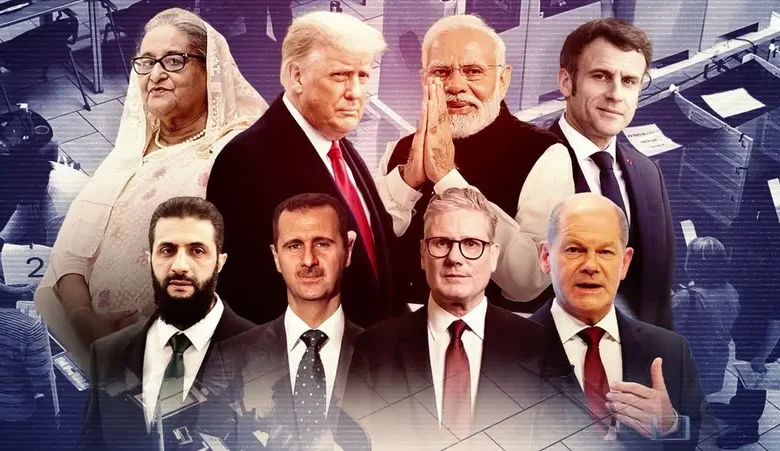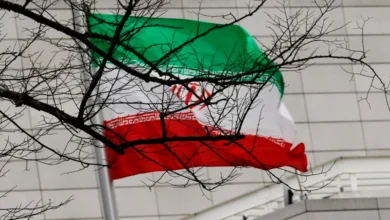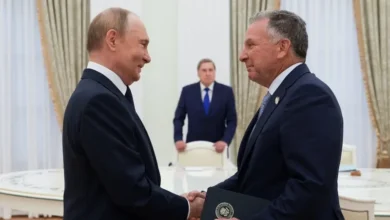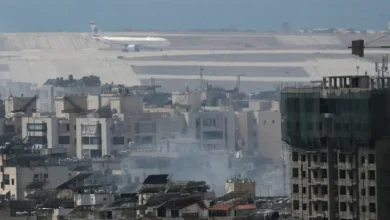‘You’re fired’: How voters spoke loud and clear in 2024

In 2024, voters around the world often delivered a clear message: “You’re fired.”
With some 70 countries conducting elections, the year 2024 marked the biggest global election year in history, representing about 49 percent of the world’s population.
It was a challenging year for incumbent governments worldwide, with many losing power or seeing their mandates weakened.
From the US and Britain, to India, Japan and France, voters frustrated by economic turmoil and global instability turned against their incumbent governments.
Incumbents punished
In 2024, soaring living costs and mounting immigration pressures, fueled by the mass displacement from war and conflicts in Ukraine, the Middle East, and Africa, led to the downfall of numerous governments around the world.
In the UK, the ruling Conservative Party, in power for 14 years, suffered a significant defeat in July to Sir Keir Starmer’s Labour Party, in an election that saw increased support for smaller hard-right parties.
The African National Congress (ANC) in South Africa, dominant since the end of apartheid, lost its parliamentary majority for the first time.
The party, once led by Nelson Mandela, lost its political dominance in May’s election and was forced to go into coalition with opposition parties, reflecting voter frustration with corruption and poor governance.
Japan’s Liberal Democratic Party (LDP), which has enjoyed uninterrupted power since 1955, lost its majority in October elections.
Prime Minister Narendra Modi’s Bhartiya Janata Party (BJP) was expected to win an outright majority in India’s mammoth general elections. But the results defied major exit polls as BJP fell short of a majority.
Incumbents were also defeated in Senegal, Ghana, and Botswana, where voters ousted the party that had held power for 58 years since independence from Britain.
Dynasties ousted
Bangladeshi Prime Minister Sheikh Hasina, the world’s longest-serving female leader, secured a fourth consecutive term with her party Awami League, in a January election boycotted by opposition parties.
Months later, her 15-year rule ended in turmoil following mass student-led protests that left hundreds dead, Hasina was ousted in August and fled to India.
In Sri Lanka, voters rejected the discredited old guard, including Ranil Wickremesinghe. In September, they elected the Marxist Anura Kumara Dissanayake as president, two years after a nationwide public movement led by an engaged middle class ousted the long-ruling Rajapaksa clan.
The stunning dramatic collapse of over the 53- years of the al-Assad dynasty in Syria in December marked a seismic moment in the Middle East.
The historic event came 13 years after Syrians first rose in peaceful protests against then President Bashar al-Assad’s government, which responded with violence, plunging the country into a brutal civil war.
Notable exceptions
Mexico and Ireland saw the continuation of the ruling parties following elections, highlighting the nuanced nature of electoral dynamics.
In a historic landslide win, Mexico elected Claudia Sheinbaum, with the support of her predecessor Andrés Manuel López Obrador, as its first woman president in 200 years, in an election that saw the highest voter turnout in the country’s democratic history.
In a year that saw parties around the world punished by voters, Ireland’s center-right Fianna Fáil and Fine Gael managed to avoid the incumbents’ curse.
Trump 2.0
Arguably the year’s most seismic result, Donald Trump’s victory in November’s US presidential election against Kamala Harris, has left America’s allies and opponents bracing for what the unpredictable “America-first” leader will do with his second term, with widespread uncertainty about his approach to both domestic policies and international relations.

Although the primary vote shifted by just one percent from the 2020 election, Trump’s Republicans campaign secured crucial victories in key regions, including the seven swing states, leading to a decisive win.
Trump’s return to power marks a dramatic shift in US politics, highlighting deep national divisions, including continued political polarization, challenges to institutional norms, plus ongoing economic and social tensions.
Democracy’s bumpy ride continues
While the US election in November dominated the headlines, over in Europe there was a sudden collapse of the coalition government in Germany, where Chancellor Olaf Scholz lost a confidence vote on December 16, triggering an early election likely in February.
French President Emmanuel Macron’s party continues to face backlash after calling for snap parliamentary elections, as he battles to stay on amid calls for his resignation.
Georgia has witnessed massive protests following an October election, which saw the pro-Moscow Georgian Dream party emerge victorious and suspend negotiations for joining the European Union.
The opposition, along with pro-Western President Salome Zourabichvili, has accused the ruling party of rigging the vote with Russia’s assistance.

South Korea has plunged into crisis after President Yoon Suk Yeol shocked the nation by declaring martial law in a late-night announcement on December 3, citing anti-national elements.
Six hours later, Parliament voted to overturn the decision, and within days, voted to impeach Yoon. The crisis in the deeply divided country shows no signs of abating.
The elections of 2024 reflect a critical reassessment of governmental effectiveness, with younger voters increasingly playing a decisive role in electoral outcome, according to global think tank Vision of Humanity, a product of the Institute for Economics & Peace (IEP).
The 2024 electoral trend, as per Vision of Humanity, also highlights a decline in loyalty to traditional political establishments, and if it continues, Germany’s Social Democratic Party, led by Chancellor Olaf Scholz, could become the first incumbent government to lose office in 2025.









